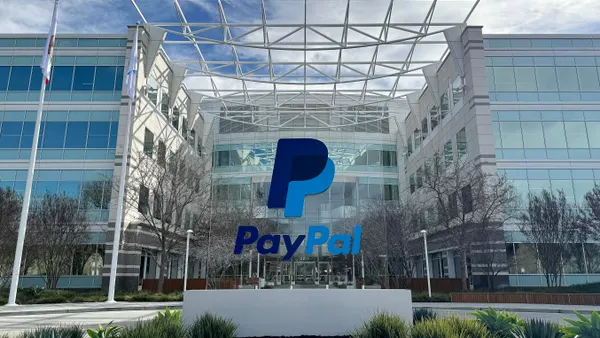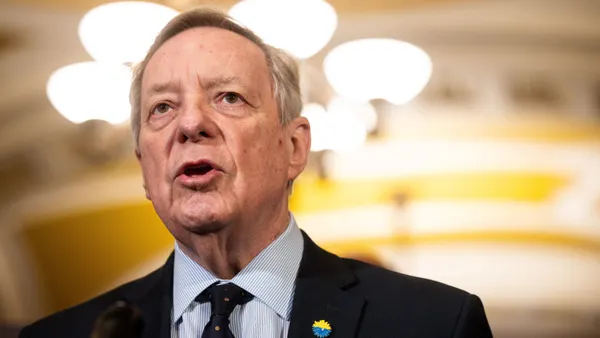The Consumer Financial Protection Bureau withdrew a proposed rule that would have barred banks from charging fees when debit card transactions and certain other payments are declined in real-time. The agency said it was considering “a more comprehensive approach” as part of the change last week.
The rule proposal made last year would have prohibited financial institutions from charging “non-sufficient funds (NSF) fees” with rejected payments made using a debit card or some types of peer-to-peer payments tools, according to a planned Jan. 14 Federal Register post. The rule also would have barred those types of fees when ATM withdrawals were rejected for lack of funds.
That objective set under the Biden administration may face a difficult path under the Trump administration. President Donald Trump’s team has suggested it will be less restrictive in its approach to regulation.
Biden’s CFPB director, Rohit Chopra, has refused to announce a resignation date for his exit, even as some other Biden appointees have taken their leave. Nonetheless, Trump’s administration is expected to seek Chopra’s ouster sooner rather than later.
The first Trump administration took a somewhat more permissive regulatory approach to such providers offering payments services. For instance, Trump’s CFPB director provided more leeway for earned wage access providers to offer consumers early access to their income through services that didn’t constitute loans. The agency under Chopra moved the other direction, issuing an interpretive rule last year that opted to treat some EWA payments with fees like consumer loans.
Regarding the insufficient funds rule proposal, the CFPB had decided to bar the bank fees when consumers’ payments are “instantaneously declined” because it considered the toll an “abusive practice” under the Consumer Financial Protection Act.
In its proposal, the rule would cement what was already common practice for many financial institutions. The CFPB said most banks and credit unions do not charge fees for real-time card or P2P transactions that are declined in real-time. Still, the rule was a pre-emptive move to protect consumers.
The agency said in the Federal Register post last week that it proposed the rule “because such fees take unreasonable advantage of consumers’ lack of understanding of the risks, costs, or conditions of their accounts at the time they are initiating covered transactions.”
The federal agency received some 8,000 comments on that rule proposal since it was proposed a year ago, from both supporters and detractors, according to the Federal Register post. The consumer advocates, think tanks and others supported it, while trade groups, banks and credit unions opposed it.
Ultimately, the CFPB said it decided that perhaps the rule proposal didn’t go far enough and pulled it to consider a regulation that went further. “The CFPB will determine whether a more comprehensive approach to also prohibit NSF fees charged for additional types of transactions will better protect consumers from potentially unlawful fees,” the agency said in the post last week.
Despite Trump’s likely plan to eject Chopra from his leadership role, there may be reason to believe that the new administration could opt for some populist measures that broadly favor consumer interests. On the campaign trail, Trump said his administration might consider a temporary cap on credit card interest rates.
Sen. Bernie Sanders has volunteered to work with Trump on such a cap and introduce that legislation.











